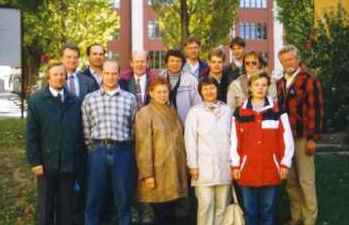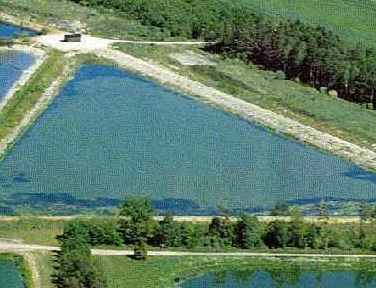|
BKA
kodulehekülg > Projektid >
Waste WEISTE
|
|
   |
|
|
|
| Waste WEISTE | |
|
|
|
|
|
|
| What
is Waste WEISTE?
Waste W.E.I.S.T.E. (Waste
in the Western Estonian Islands - Sustainable Treatment Efforts) is
a project involving three Baltic islands: Gotland (Sweden), Hiiumaa
and Saaremaa (both Estonia). The aim of the project is to promote
and introduce sustainable solutions for the treatment of waste water
and solid waste in CEE islands, by means of co-operative links and
transfer of know-how from the EU island region. |
|
| Local
Teams of Experts
Local teams of experts have
been set up in both Estonian islands. The leader for Hiiumaa team
is Mr. Ruuben Post from Hiiumaa Biosphere Reserve Centre and the leader
for Saaremaa team is Mr.Erik
Keerberg from Foundation Saaremaa University Centre. |
|
|
As a result of Gotland experts' visits to Hiiumaa and Saaremaa on 30th November - 6th December 1996, a draft study of the waste water management and solid waste management on both Estonian islands was elaborated. One of the central events was a study visit of Hiiumaa and Saaremaa experts to Gotland on 15th - 18th September 1997. The representatives of the eastern project partners benefited from Gotland's experiences in waste water and solid waste management. The study visit with numerous presentations, discussions and site visits was very informative and instructive. It has proved to be useful and inspiring for the continued project work. |
|

The participants of the study visit
from Hiiumaa and Saaremaa with the hosts from Gatukontoret of Gotland
municipality in Visby, September 1997 |
|
|
The following three manuals have been translated from Swedish into Estonian and published:
Draft versions of Waste Management Plans have been produced on both Estonian islands with assistance from Gotland Kommun. These documents outline the most urgent priorities and set out a number of actions as follow-up of the project. |
|
|
Aside from numerous articles in local newspapers Hiiumaa Biosphere Reserve Centre has published a special issue of its newspaper "Kaitseala Teataja", dedicated to the results of the project (in Estonian). You are welcome to read it! |
|
|
(summary based on opionions of the partners)
Hiiumaa
Saaremaa
Gotland
|
|
| |
Hiiumaa
| Biosphere Reserve's Hiiumaa Center |
Tourist
information | © 1998 HiNet Last updated 28.02.98 |
